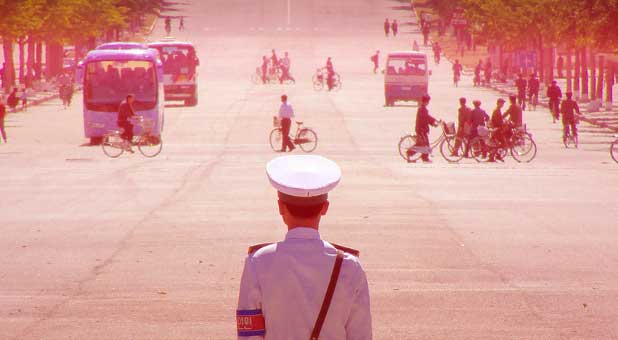Christian Groups Vow to Carry on Missionary Work in North Korea
Christian groups in North Korea are vowing to carry on their missionary work despite mounting risks since Korean-American activist Kenneth Bae was imprisoned two years ago.
North Korea and neighboring China have clamped down on the groups’ activities recently, and the organizations say that has forced them to become more secretive. Bae’s unexpected release has not changed that.
“We are getting more nervous,” said Kim Seung-eun, a missionary for the Caleb Mission, which is based in South Korea’s South Chungcheong Province but frequently travels to North Korea. “We have to come up with a strategy to avoid another case like Kenneth Bae’s.”
The North Korean government arrested Bae in November 2012 at a border crossing with a tour group of Christian students, saying he was plotting to bring down the government through “religious activities” by setting up a base for Christian missionaries at a hotel in the northern city of Rason.
He was sentenced to 15 years of hard labor but was released on Saturday after diplomatic bargaining. Bae has remained silent on his missionary work and his imprisonment. On Monday, Bae’s sister said he would not do interviews.
Such reticence is necessary, said one U.S.-based activist, because of the dangers involved in propagating religion, especially in an overt, organized way in a totalitarian state.
“If one person is caught, then everyone else can suffer the consequences,” said Sam Kim, executive director of the Korean Church Coalition for North Korea Freedom, which is based in Southern California.
Although there are four state-operated churches in Pyongyang, which outside groups say are merely for show, religion is ruthlessly suppressed in North Korea, where the only acceptable form of devotion is to the country’s ruling family and its supreme leader, Kim Jong-un.
Open Doors, a group that monitors religious persecution globally, says North Korea is the worst country to be Christian. It says 70,000 Christians are in labor camps there, though there is no way to corroborate that.
The clamp-down on Christian-backed humanitarian organizations along the North Korea-China border has made it harder for activists to aid fleeing North Koreans as they try to make their way to South Korea via China.
“The people I talk to—the rescuers—say that it’s tough right now,” said Melanie Kirkpatrick, who has written a history of the “underground railroad,” the network that helps people escape from North Korea. Fewer North Koreans are escaping to China, she said.
Meanwhile, activists have become more cautious. Said Joy Jung of Cornerstone International Ministry, a missionary organization based in Seoul: “People who are entering North Korea should not reveal themselves as Christians.”
That view is reinforced by one missionary from Peace Corea, also based in Seoul, who declined to be identified.
“We tend to be much more careful than before and are trying to find other ways to spread Christianity in North Korea,” said the missionary. “Defectors tend to stay quiet on the issue. Even though Kenneth Bae has been released, we are not planning to be more aggressive with our activities from now on.”
















































